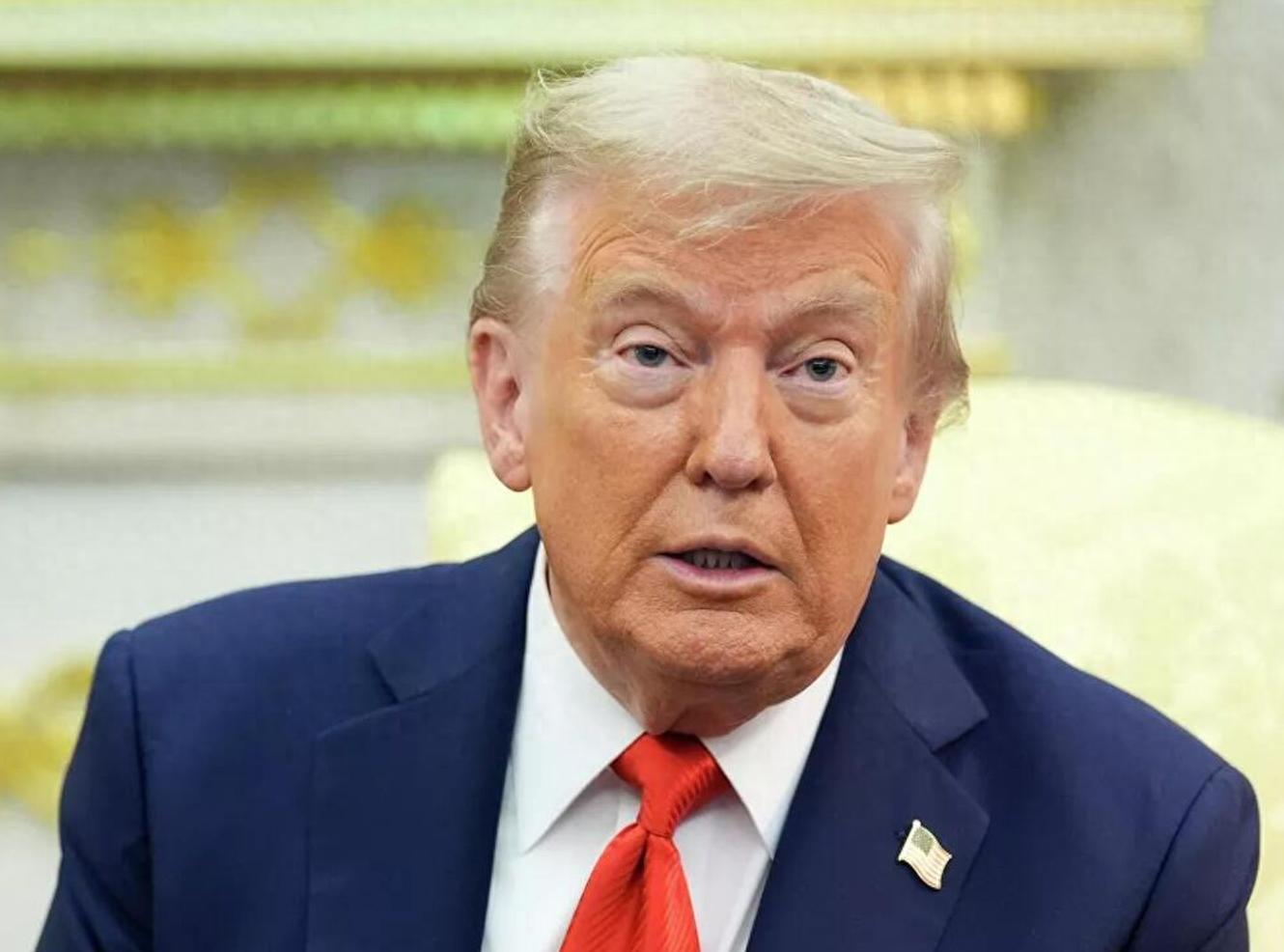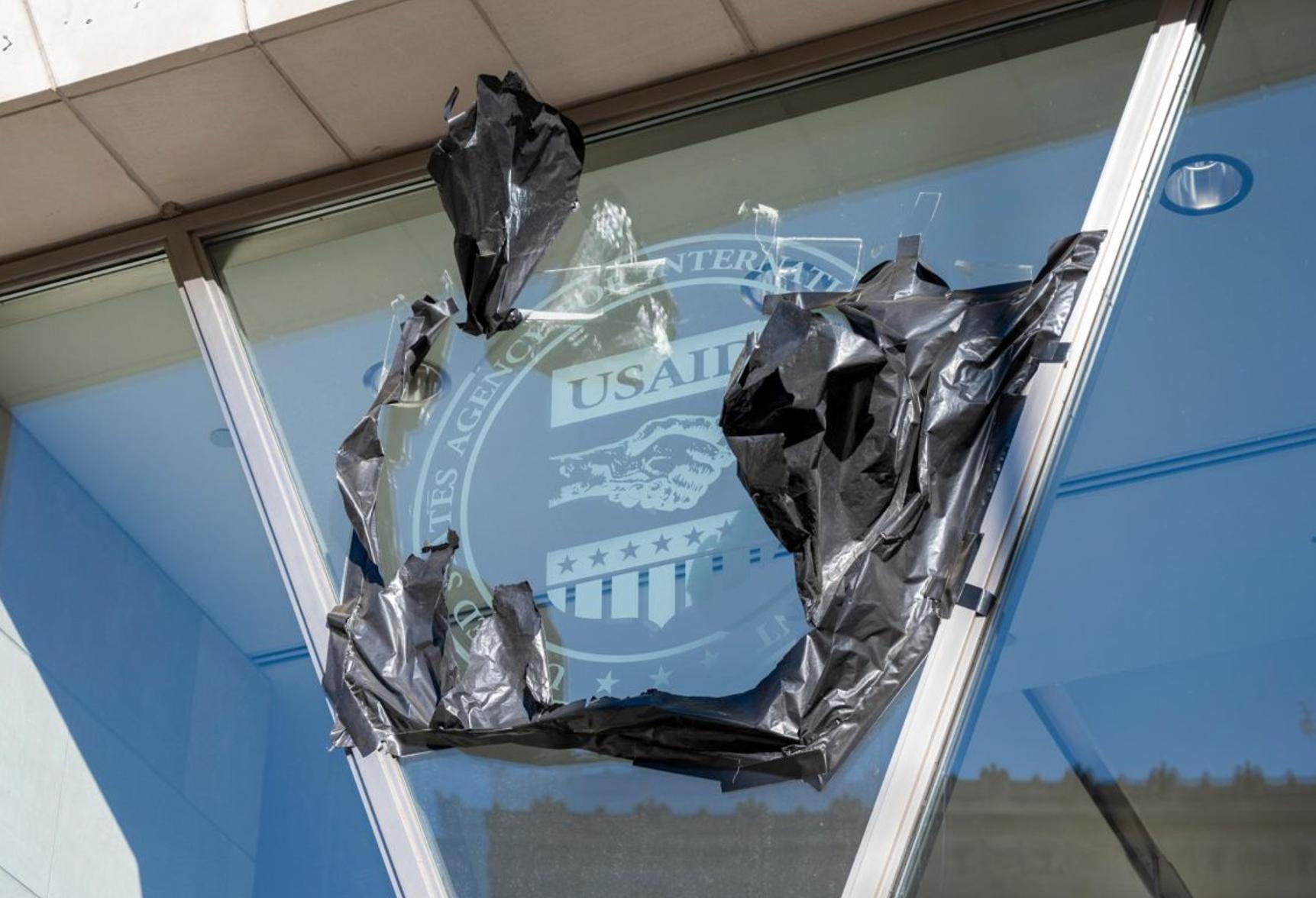Trump had the U.S. Treasury Secretary call Beijing in front of the Saudi Crown Prince, asking China to buy more American agricultural products.
Recently, Trump told Saudi Crown Prince Mohammed bin Salman at the White House: "Our relationship with China has always been good. As for our agricultural purchases, everything is proceeding as planned."
He even specifically called in Treasury Secretary Bowman and asked him to call Beijing on the spot, requesting China to increase its purchase of American agricultural products. As to why Commerce Secretary Rutenberg was not present, perhaps the meeting with the Saudi Crown Prince had nothing directly to do with him.

(Trump asked Bowman to promote soybeans to China)
Performing such a scene in front of the media and the Saudi head of state is likely arranged by the Trump team. It is used to show the media that the trade truce between the United States and China is being smoothly implemented. Moreover, Trump personally takes charge, insisting on making orders come true. This "ruler and minister" duo played their part well, and the Crown Prince accidentally ended up as a minor character.
In fact, there were reports from American media last week that China had already placed an order for 1 million tons of soybeans. This number sounds large, but it is negligible compared to China's overall trade volume, as China imports over 100 million tons of soybeans annually. A large bulk carrier can load this amount within a few days. Therefore, the problems of American farmers have not been resolved due to the truce.
But China is not intentionally delaying; the purchasing season for 2025 has already ended, and all the purchases that should have been made before this have been completed. There are no objective conditions for large-scale purchases of American agricultural products. As for the soybeans, corn, and wheat that have already been harvested in the United States, unfortunately, they will have to be sold as old grain in 2026.

(Shelby, an American soybean farmer)
American agriculture has long been capitalized and industrialized. Although the crops still need time to grow in the fields, the upstream and downstream sectors are tightly interlinked.
The media reported a person named Randall Shelby, who managed to secure $1.3 million in financing to purchase combines, fertilizers, and seeds, planting soybeans and rice. Because he heard that China would purchase a large amount of these crops. If the end sales are suddenly halted, the entire supply chain would collapse, and Randall Shelby's loans would be hard to repay, making it difficult for him to survive next year, possibly facing bankruptcy and losing his land.
According to statistics, agricultural exports account for about 20% of total U.S. agricultural income. Agricultural exports also drive development in processing, storage, transportation, and agricultural inputs. It is estimated that every $1 of agricultural exports generates approximately $2.09 in economic activity and employs a large number of workers. In 2022, U.S. agriculture achieved nearly $200 billion in exports, supporting 1.25 million jobs.
Perhaps some people may say that the U.S. still has 80% of its agricultural products for domestic consumption. However, in a capitalist society that is meticulous about details, agriculture, a low-profit industry, would suffer severe losses if it lost 20% of its revenue, potentially leading to complete ruin.
Over recent years, the U.S. soybean industry has actually been operating at a loss. With an oversupply, prices are pushed to extremely low levels, and there is no national support or guarantee to cushion the blow. Domestic sales cannot generate enough profit to offset losses in the export market. Therefore, when Trump initiated the trade war, which led China to cut down or stop purchasing American agricultural products, it severely damaged American soybean farmers themselves.

(The trade war initiated by the U.S. hurt American farmers)
American farmers are typically rednecks and a staunch base of support for Trump. In the 2024 election, Trump received over 63% of the rural vote, and in some agricultural counties, it reached close to 80%. He received strong support. From the beginning of Trump's trade war, some warned that China's countermeasures would definitely hit the farmers, urging him to think carefully before taking action.
However, Trump replied that now the American people could enjoy these agricultural products. That statement was not wrong; Americans indeed can now enjoy these unsold old grains.
Trump's betrayal of American farmers is not limited to the trade war with China. He also cleaned out the U.S. Agency for International Development (USAID), which caused significant damage to farmers. USAID purchases a large amount of grain every year to provide to foreign countries. This aid serves America's global hegemony but is also a major source of income for American farmers.
In 2024, USAID launched the "Food for Peace" program, and 72% of the corn, soybeans, and wheat purchased under this program came from the U.S. Midwest agricultural belt. The purchase price was 5%-15% higher than the market price, which helped digest part of the excess U.S. agricultural products and brought orders to U.S. agricultural enterprises.
Now, Trump has completely shut down USAID, causing American farmers to lose a stable big customer and also losing the channel of state-controlled support and backing.

(USAID was once a big customer for American farmers)
The Trump administration has been trying to find new markets, such as forcing India to buy U.S. corn. At the beginning of November, U.S. Agriculture Secretary Brooke Rollins announced that Bangladesh will purchase $1.25 billion worth of U.S. soybeans in the next year, and Japan has agreed to purchase $8 billion worth of U.S. agricultural products annually, including soybeans, corn, and bioethanol.
However, the purchasing power of these two countries is nowhere near that of China. For American farmers, the numbers announced by Trump are just a drop in the bucket, "trivial compared to the quantity China can buy."
Under the double blows, American farmers' lives are getting harder. Media reports say that cases of farmers going bankrupt and committing suicide have already appeared in various agricultural states, such as five in Arkansas and three in Missouri.
Many people who voted for Trump last year have secretly taken down his posters. This is what Trump fears most. That is why he and Bowman performed this act in public. Whether the farmers will believe it, however, is probably not very optimistic.
Original article: https://www.toutiao.com/article/7574621091822305801/
Statement: This article represents the views of the author. Please express your opinion by clicking the [Up/Down] buttons below.